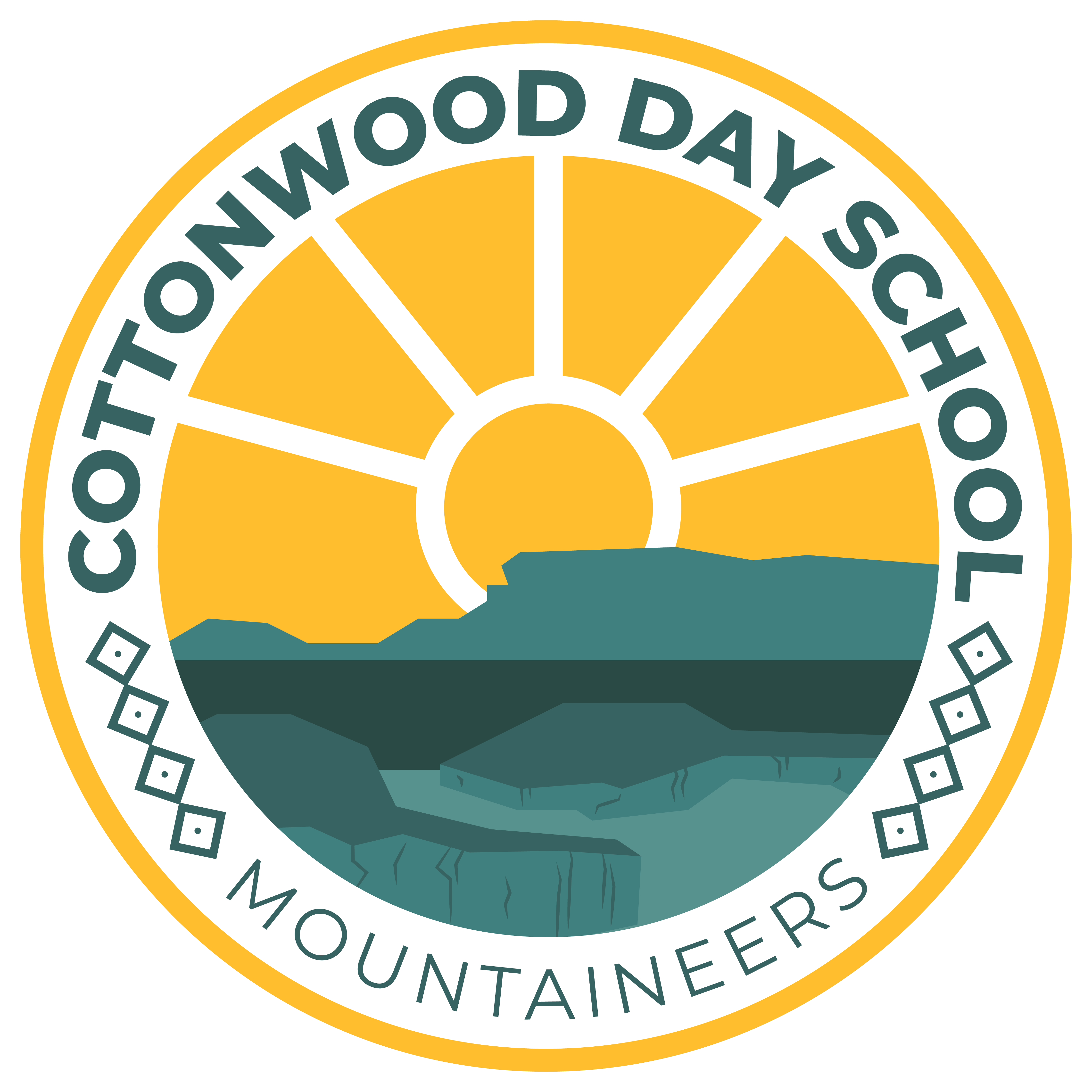Our History

Establishment of Cottonwood Day School
Cottonwood Day School is a story of education, resilience and determination of the Chinle, Arizona, Navajo community. Officially dedicated in 1968, the school’s origins date back to the 1950s, when the elders of the Tsélani/Cottonwood Chapter identified an urgent need for education in their community.
At the time, the nearest Bureau of Indian Affairs boarding schools were miles away, accessible only via clay roads that were often impassable. The community relied heavily on their children for chores, making sending them away for education difficult. As the Navajo Nation transitioned to a cash economy, the elders recognized that future generations would struggle to thrive in a changing world without education.
The elders took action, petitioning the local BIA office for a new school. The BIA agreed to staff a school if the community built the structure. Fueled by determination, the local Navajo community constructed a log cabin that served as the first schoolhouse, opening its doors in 1954.
In 1968, the BIA replaced the log cabin with a modern school building, marking the official founding of Cottonwood Day School. The school was a symbol of the community’s dedication to self-determination and the value they placed on education.
The Learning Environment at Cottonwood Day School
In its early years, Cottonwood Day School offered a basic education within the constraints of its log cabin structure. Despite these humble beginnings, the emphasis on learning remained strong, and the community’s support played a pivotal role in fostering a positive educational atmosphere.
Cottonwood Day School grew into a dynamic and nurturing learning environment for the community’s kindergarten through eighth-grade students. Operated by the Bureau of Indian Education, the school served approximately 200 students residing in the expansive areas between Chinle and Piñon.
Classrooms were soon modernized, boasting advanced teaching tools and resources. The curriculum combined foundational academic subjects such as mathematics, science, and English with lessons that emphasized the Navajo language, culture, and history. This dual focus ensured that students were well-prepared for higher education and careers while remaining connected to their heritage.
Teachers at Cottonwood Day School employed evidence-based learning strategies tailored to their students' unique needs. The school’s holistic approach prioritized each child's intellectual, emotional, social and physical development. Extracurricular programs, cultural activities and community involvement further enriched the educational experience, fostering a love of learning and a sense of belonging.
The Navajo Community of Tsélani/Cottonwood
The name Tsélani translates to “many rocks,” reflecting the landscape and natural features of the area characterized by rugged terrain and rock formations. This name signifies the community’s deep respect for its natural surroundings and cultural heritage.
Located in a region defined by vast landscapes and natural beauty, the Tsélani/Cottonwood community has always valued its connection to the land and its traditions. Cottonwood Day School has proudly represented the Navajo community’s history of perseverance and educational advocacy for its people.
The people of Tsélani/Cottonwood have a long history of fighting for their rights and needs. From advocating for education and building the original log cabin school to establishing one of the first senior centers on the Navajo Nation, the community has consistently prioritized the well-being of its members.
The senior center, inspired by community advocate Mary Totsoni, is a testament to this commitment. It provides a space where elders can gather, share meals, engage in activities and pass down their knowledge to younger generations. This intergenerational connection has strengthened the community and preserved its cultural identity.
Connections to Other Tribes and Communities
While Cottonwood Day School primarily served the Navajo community, its influence extended beyond the immediate area. The school fostered connections with neighboring tribes, regional educational institutions and cultural organizations, creating opportunities for collaboration and mutual learning.
Cottonwood Day School benefited from partnerships that support educational initiatives across the Navajo Nation as well as other tribal communities. These collaborations enhanced Cottonwood’s ability to provide quality education while promoting cultural preservation and intertribal unity.
A commitment to integrating Navajo traditions into the curriculum served as a model for other tribal schools. By celebrating shared values and fostering mutual respect, Cottonwood Day School helped strengthen bonds among Indigenous communities throughout the region.
Throughout its history, Cottonwood Day School has remained a beacon of education and empowerment for the Tsélani/Cottonwood Chapter and beyond. Its legacy of resilience, advocacy, and community spirit continues to inspire students and families, paving the way for a brighter future for generations to come.



